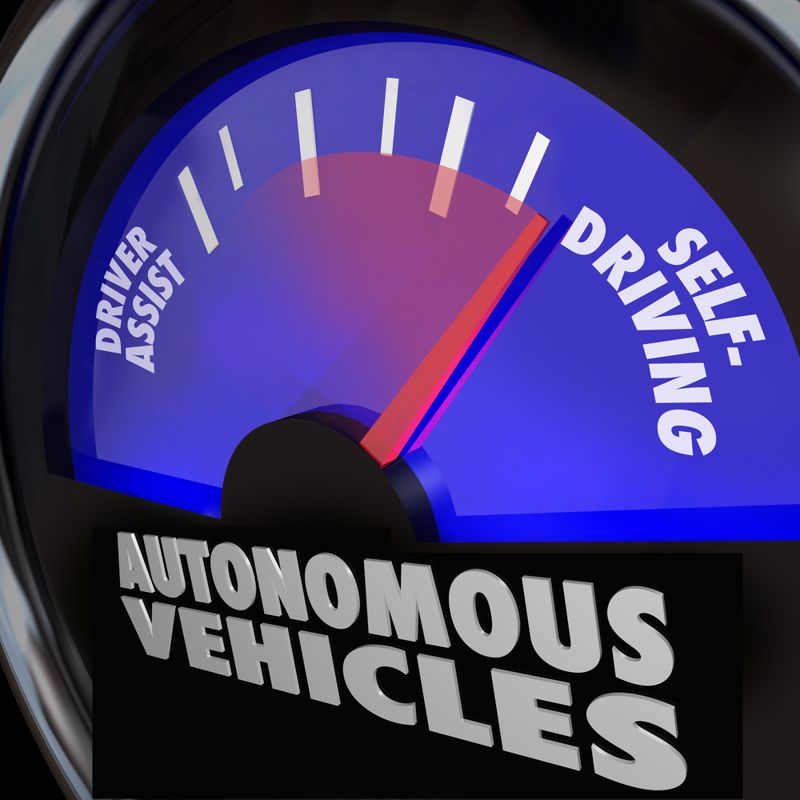

When it comes to the expectations people have for being able to own self-driving vehicles, there have been some serious ups and downs in recent years. Some have a perception of the technology as being highly viable and right around the corner, and others feel as though it is potentially dangerous and, they are not particularly interested in it. However, over time, people seem to be leaning more to the former view than the latter, even as skepticism remains.
Indeed, the edge intelligence solutions firm Klas recently released a survey of drivers in the U.S., U.K., and Germany, which found that nearly half of respondents believe fully self-driving vehicles are likely more than three years away from being widely available. Roughly 1 in 4 would, however, pay a $10,000 premium on a new-vehicle purchase to get the technology for themselves.

Perception issues linger
Conversely, 31% of respondents in the U.S., and more than 20% overall, said that they believed these vehicles were readily available to the general public, highlighting the very real perception gap between what consumers think is true and what's actually the case. Moreover, it seems that overall, sentiment about what autonomous vehicles can do for the general public is strong, the survey showed. For instance, more than 1 in 4 drivers polled said they are excited about using self-driving vehicles to deliver groceries and other materials directly to their homes, and nearly as many believe that this will have a positive impact on both human productivity and the environment.
Of course, as with any discussion of AV technology, consumers are also somewhat wary of the current capabilities versus what it promises, and it will likely take some industry work to bridge the gap. Klas found that more than 1 in 5 respondents were particularly concerned with how effectively these vehicles can detect obstacles in the road, and roughly the same number were wary of these vehicles malfunctioning while in traffic. Still more were concerned that the systems could be hacked and the vehicles hijacked.
Similar findings
Meanwhile, a similar survey from CarGurus found that 33% of respondents "expressed excitement" about how AV technology was advancing and another 37% were neutral on the idea, but only 20% said they would currently be comfortable sharing the road with fleets of automated commercial vehicles. More than half of those polled said that they would prefer to drive their own vehicles at this time.
But that's a discussion about the present state of the technology, and consumers have a far rosier view of the future: CarGurus found that more than half would trust these vehicles to drive them home if they were unable to do so, and 42% would trust them to park themselves safely, once the technology has advanced sufficiently. In the meantime, consumers still have concerns about the effectiveness of driver-assist features like back-up cameras and blind spot monitoring in these vehicles, even as many drivers already operate vehicles that feature both.
As such, more than a third of respondents believe that they will own one of these vehicles within a decade. On the other hand, 45% recognized that it would take a "huge leap in technology," and issues like cost and safety were still cited by many respondents as a hurdle to that hoped-for ownership.
Potential use cases
A survey from AAA released in early 2021 also found that consumers have some very specific uses in mind for these kinds of vehicles. For instance, 21% said they would be more likely to use AVs "as an alternative to public transportation," slightly more than the 19% who would use them instead of traditional ride-hailing services. However, only 14% of respondents in that poll said they would trust such a vehicle today, and another 32% are unsure of it.
Clearly, then, this is an issue of both messaging about what's realistic in self-driving vehicles today and being able to develop public trust in the safety and reliability of AVs. This may be years or more away from being reality, but laying the groundwork now could help people the world over embrace these vehicles with open arms.
Greening Testing Laboratories is a fully certified brake testing lab that provides a variety of brake testing services worldwide. Contact Greening for a complimentary consultation.